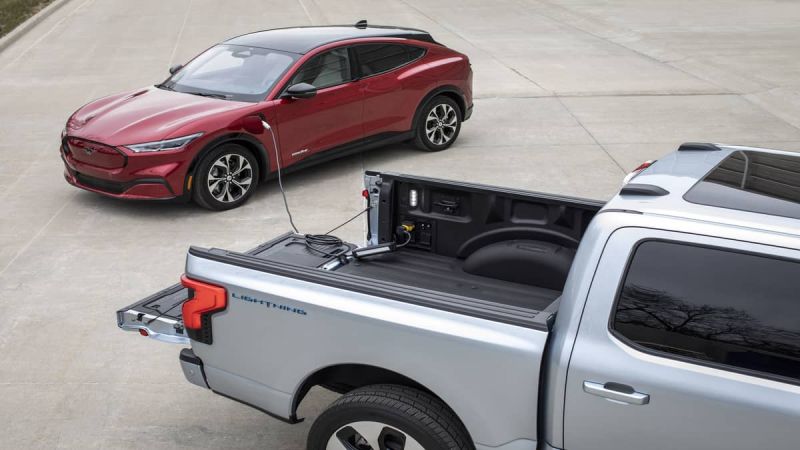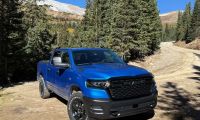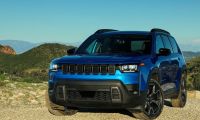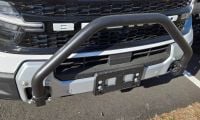Charging an electric vehicle is usually a relatively simple affair, with drivers only having to find a charging station and plug in their electric car. But what if the power goes out due to a storm or other mass disaster. That easy access to energy is rapidly cut off, and keeping your EV charged has become alot harder. Ford is aware of this problem and has revealed that the Ford F-150 Lightning and Powerboost Hybrid can now charge EV vehicles.
A Small Adaptor Makes Bold Impact
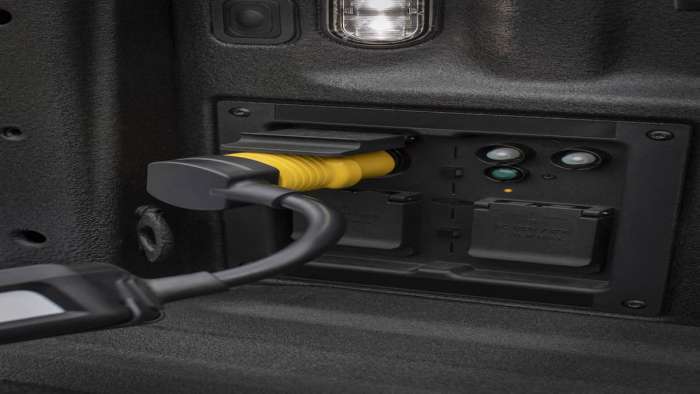
Ford's Pro Power Onboard System has already proven its usefulness in other situations with bad ice storms in Texas, serving as a real-world application of the F-150's ability to power select sections of a residential home. However, this new application breaks new ground for the system and also helps play a small but important role in Ford's broader EV adoption plans.
The secret is a small adaptor that allows the Ford Mobile Power Cord's Nema 14-50R plug to fit with the Nema 14-30p Pro Power Outlet mounted on the left side bed wall. After that, you can then connect the stricken EV to the truck and charge it from the onboard generator. Ford claims that this type of scenario will allow a Mustang Mach-E to get 20 miles of ranger per hour charged, which is roughly the same amount of electrons that the Mach-E gets when plugged into a traditional 240-volt outlet at home. The miles per charge dip a bit with other EVs hooked up to a donor F-150, with a Lightning getting 13 miles of range per hour while a low roof E-Transit gets 10 miles of range per hour.
Read The Fine Print

A prominent catch to this seemingly perfect solution is the Pro Power Onboard System's capacity, with Ford reps revealing that only the higher capacity systems have this nifty charging ability. That means owners with the smaller 2.0 and 2.4 kW Pro Power systems get to sit on the sidelines for this one.
It's unknown why Ford is not extending this to those owners (despite selling a separate adaptor for the cord that uses the 120V outlet in those trucks). Still, we suspect that a key reason is due to the sluggish rate of charge that the smaller systems can dish out versus the heftier ratings boasted by the 7,2 kW and the 9.6 kW Pro Power generators. Ford is eying this as a tool to help stranded EV owners, and the less time to wait for a charge, the better.
The adaptor is designed to work with vehicles that support the J1772 connector, which means that a Ford owner can give juice to an EV from virtually any brand that uses the connector.
Photo Credit: Ford Motor Company
Carl Malek has been an automotive journalist for over 10 years. In addition to his specialization with Ford, he grew up in a General Motors household and is extensively familiar with their products too. Contact Carl on Twitter at @CarlMalek3, on Instagram and Facebook for automotive news to send news tips.
Set Torque News as Preferred Source on Google


